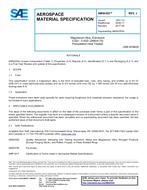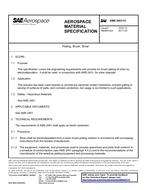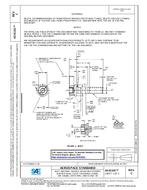This recommended practice defines a procedure for the construction and testing of a 180 deg peel specimen for the purpose of determining the bondability of glass to elastomeric material in automotive modular glass. This test method suggests that elastomeric material of less than 172 mpa modulus be used as the encapsulating material. The present practice of encapsulating automotive glass is described as molded-in-place elastomeric material onto the outer edge of the glass using thermoplastic or thermosetting material that quickly sets in the mold. The glass is removed from the mold with the cured elastomeric material bonded to the perimeter of the glass. This encapsulated glass module can now be bonded with a sealant adhesive into the body opening of a vehicle.
Product Details
- Published:
- 10/01/1989
- File Size:
- 1 file , 35 KB


